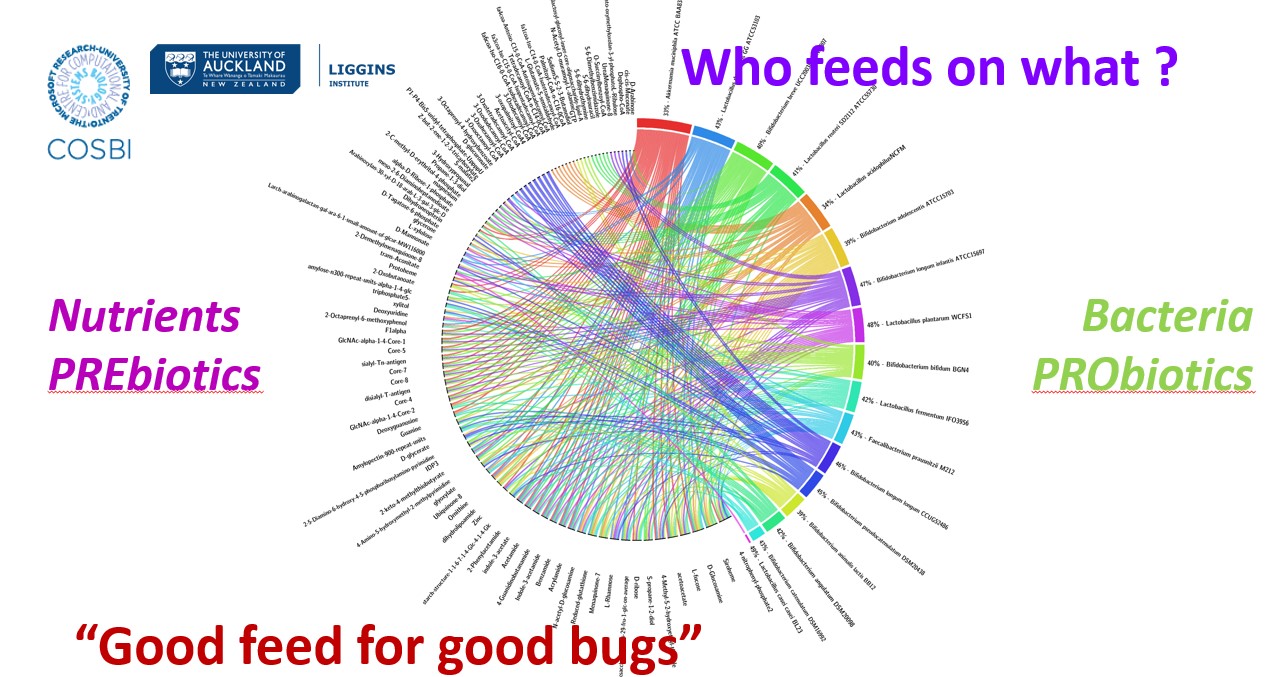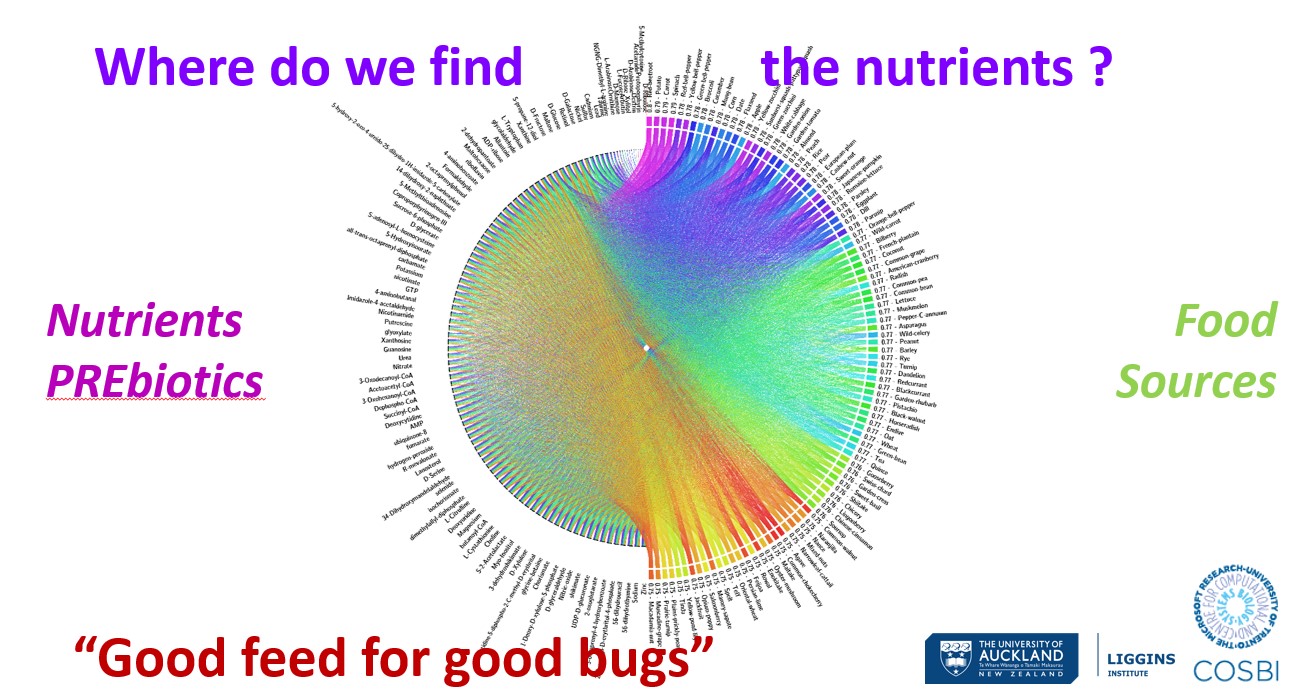
Michelini S, Balakrishnan B, Parolo S, Matone A, Mullaney J, Young W, Gasser O, Priami C, Lombardo R, Kussmann M. BMC Microbiol. 2018 (6) 171: ”A reverse metabolic approach to weaning: In silico identification of immune-beneficial infant gut bacteria, mining their metabolism for prebiotic feeds and sourcing these feeds in the natural product space”.

Michelini S, Balakrishnan B, Parolo S, Matone A, Mullaney J, Young W, Gasser O, Priami C, Lombardo R, Kussmann M. BMC Microbiol. 2018 (6) 171: ”A reverse metabolic approach to weaning: In silico identification of immune-beneficial infant gut bacteria, mining their metabolism for prebiotic feeds and sourcing these feeds in the natural product space”.
Biotechnology can be understood as fusing biology with technology thereby learning from nature and translating this into solutions to the benefit of humanity and the planet. Nature has indeed many answers to our questions about human and planetary health and we need to ask the right questions and to get better at finding these answers.
Humans have been harnessing biological processes to improve their quality of life for some 10’000 years, beginning with the first agricultural communities. Approximately 6’000 years ago, humans began to use microorganisms in order to make bread, alcoholic beverages, and cheese, and to preserve dairy products. But such processes are not what is meant today by biotechnology.
For more than a decade, the biotechnology industry was dominated by recombinant DNA technology, or genetic engineering. The main early achievement was the ability to produce naturally occurring therapeutic molecules in larger quantities and higher purity than possible from conventional sources. Today, biotechnologists seek to discover the root molecular causes of disease and to intervene precisely at that level, e.g. by producing therapeutic proteins that augment the body’s own supplies or compensate for genetic deficiencies.
Biotechnology has developed into an integral part of agriculture, the food, feed, and health care systems, and various environmental and industrial applications. It can facilitate or even enable the development and production of more precise and more sustainable analytical tools, production methods, consumer products, and patient solutions. Especially the ‘green biotechnology’ has greatly contributed to feeding a rapidly growing global population with grains, cereals, and crops that produce high yields, are enriched in nutrients, and can grow under different environmental conditions.